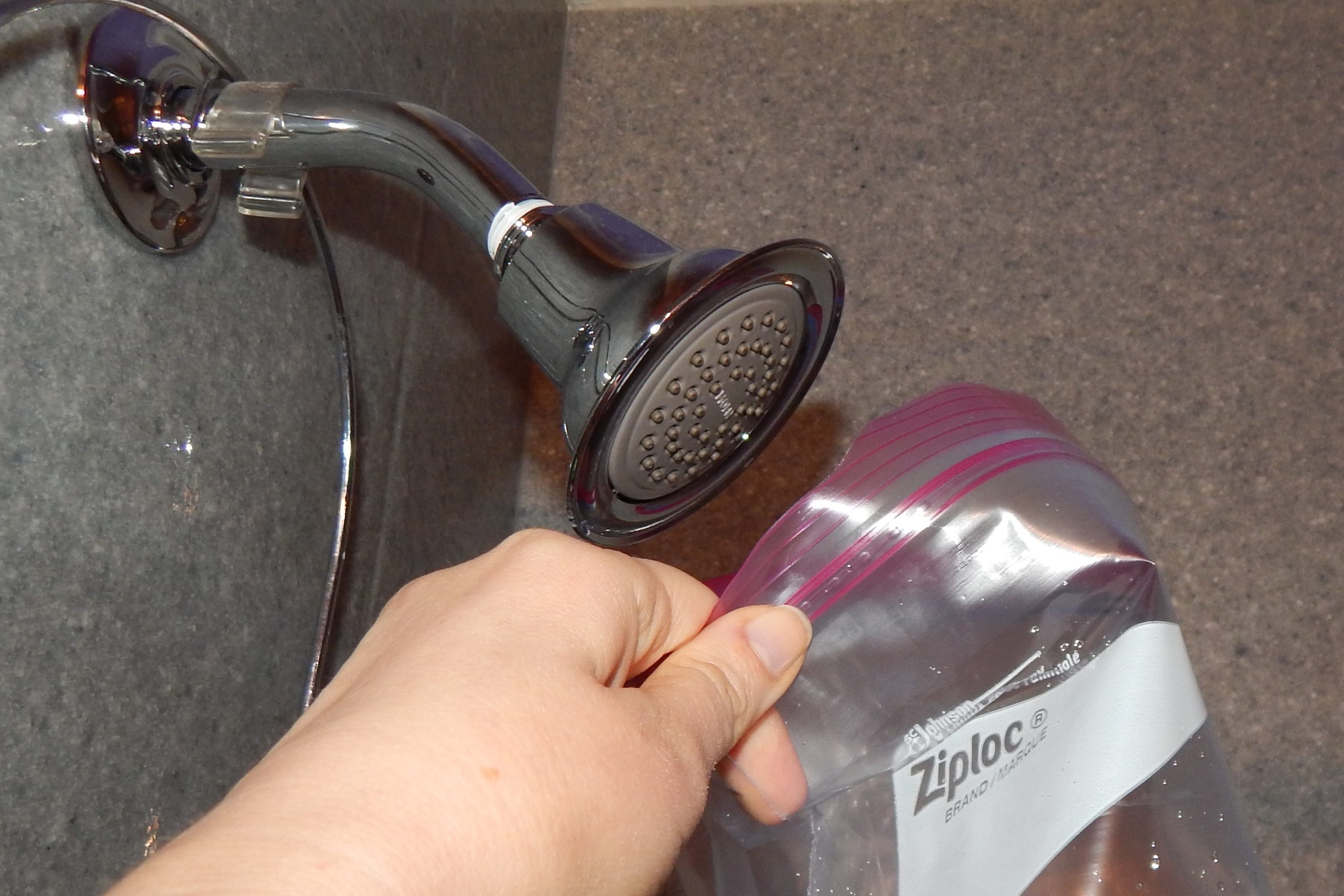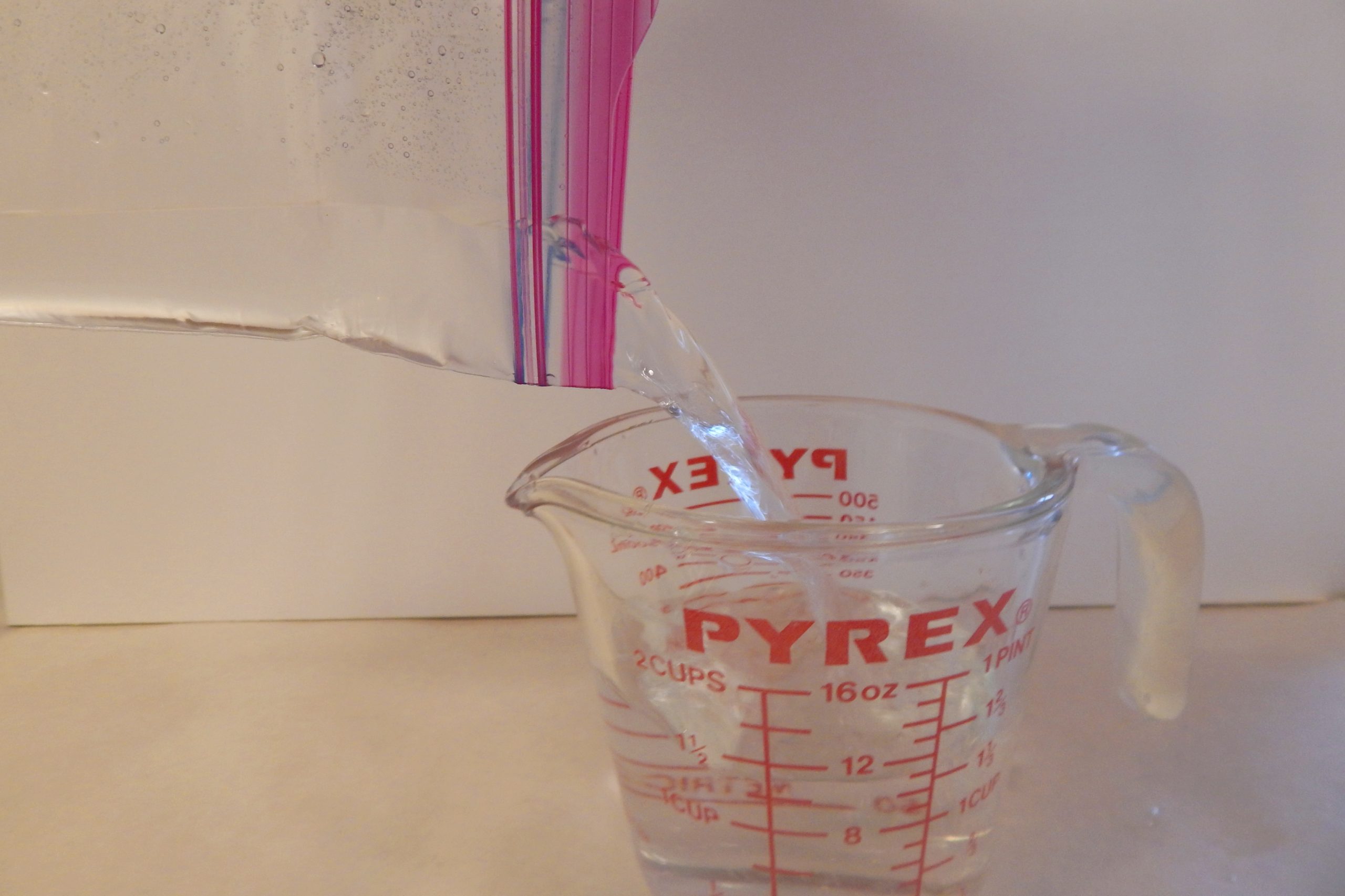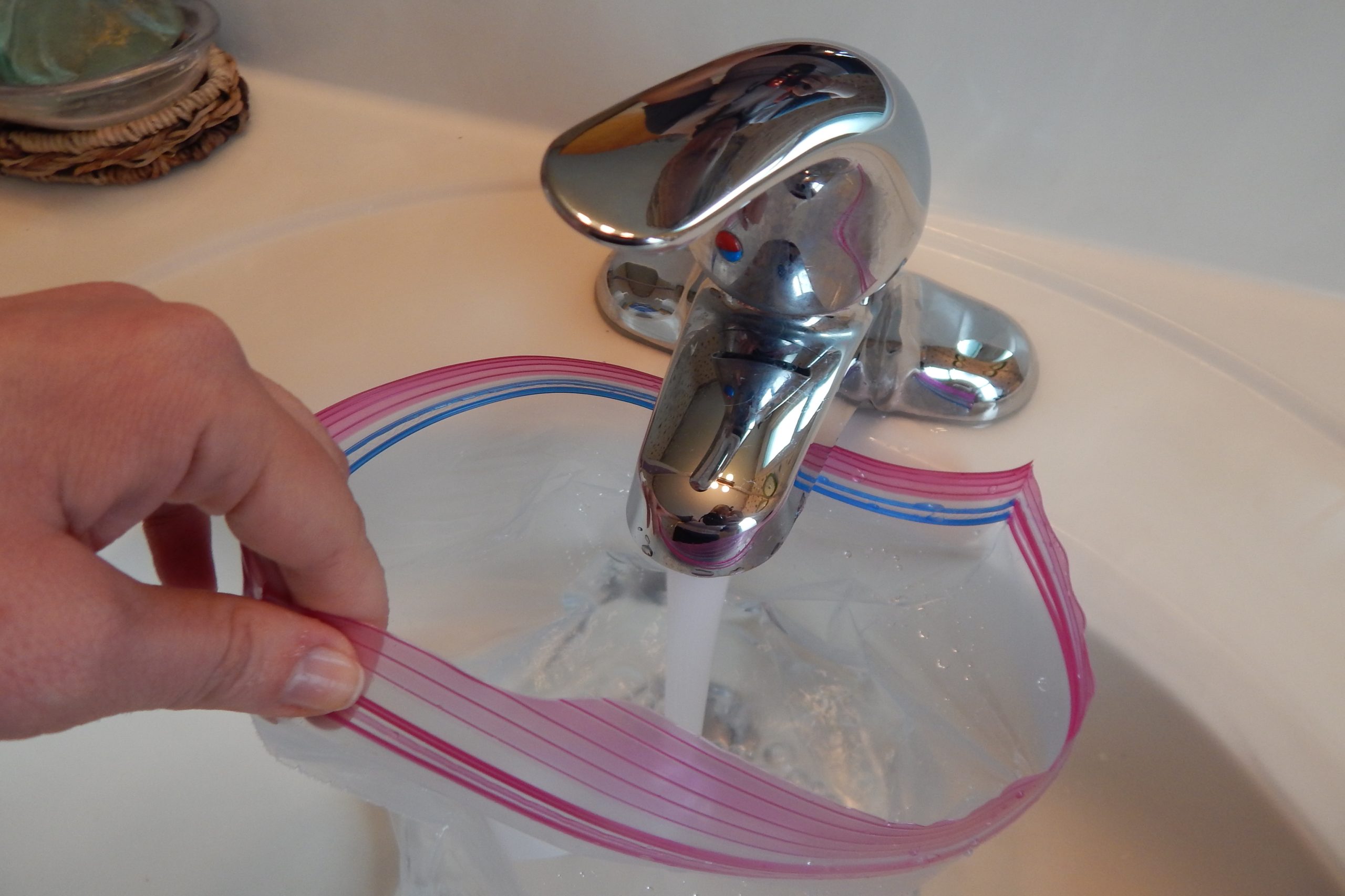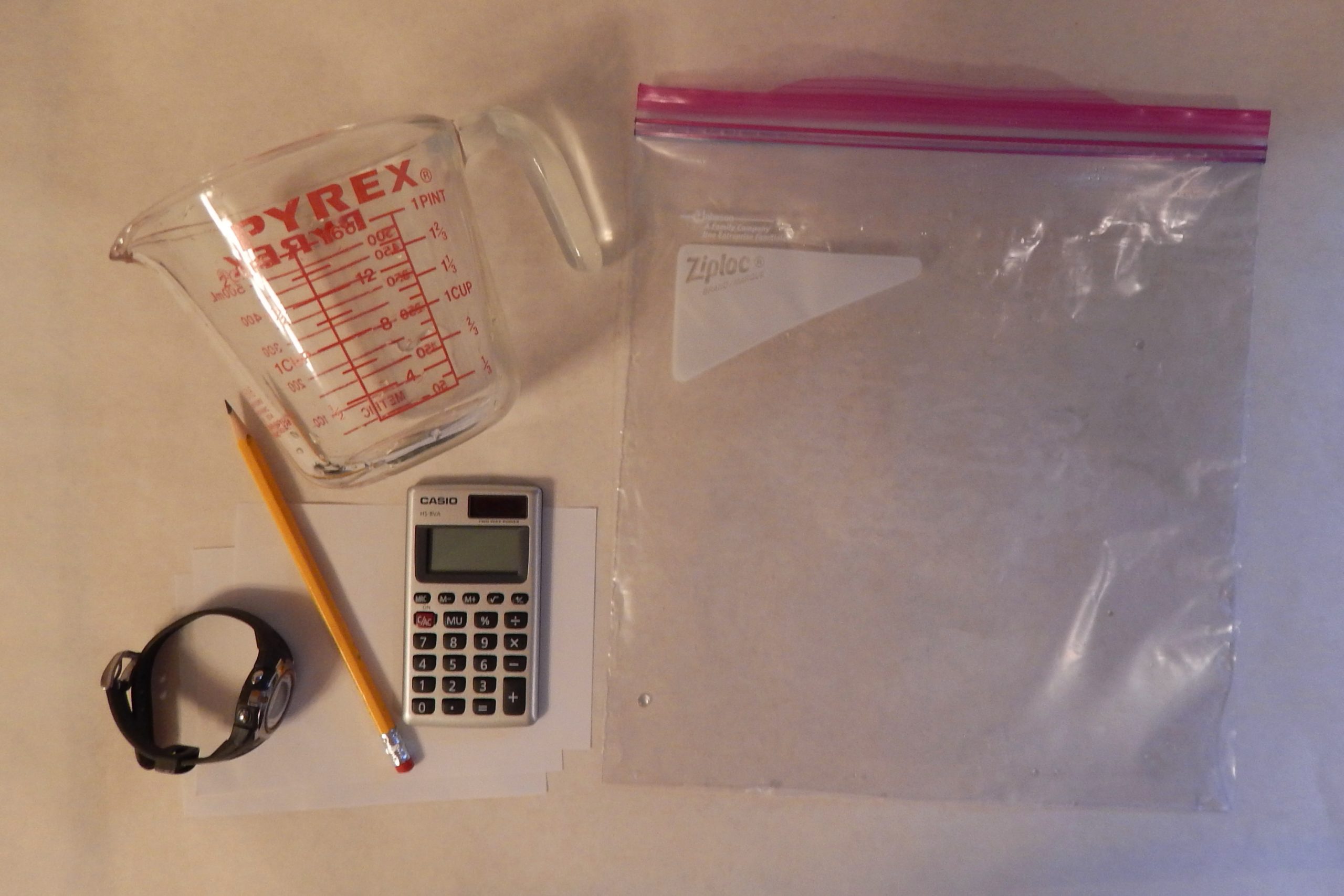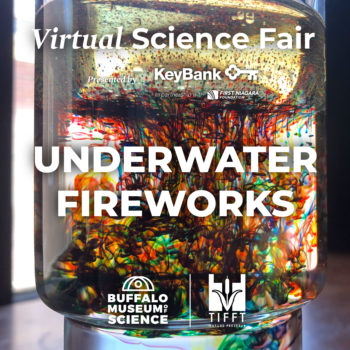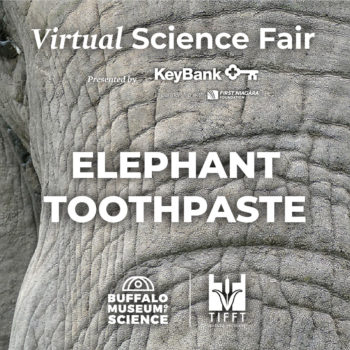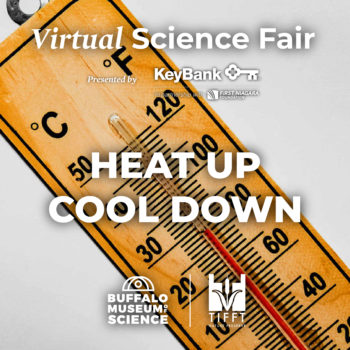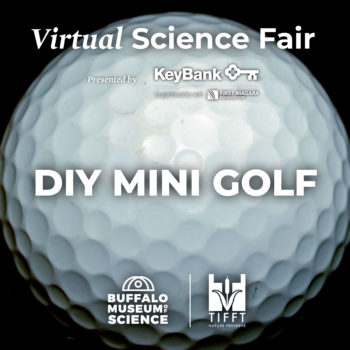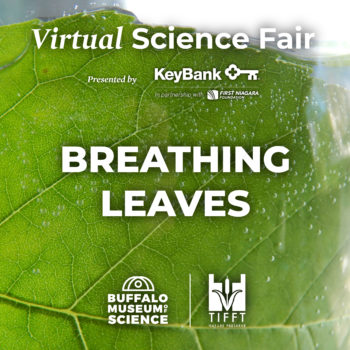Go With The Flow

Have science fun as a family! Complete activities with parental supervision.
Materials:
- Gallon-sized plastic bag or a bucket
- Measuring cup
- Timer or watch to measure seconds
- Paper and pencil
- Showerhead or any water source at home
- Optional: Calculator
Procedure
- Turn on the faucet and place the bag or bucket underneath to capture the water for exactly ten seconds.
- Decide what unit of measurement you will be using for this experiment. Cups, milliliters, or liquid ounces? Whatever you do, make sure you keep using that unit. Consistency is key!
- Carefully pour this water into a measuring cup to measure amount (or volume) of collected water. Depending on the size of the measuring cup and the amount of water, you may need to fill up the cup, record that amount, empty the cup, and pour in the remaining collected water. Add the amounts together to calculate your flow rate: amount of water/ten seconds.
- If you want to calculate the flow over one minute, multiply the volume by 6, to make 60 seconds. Water volume/10 seconds x 6 = Water volume/60 seconds
- Try another faucet or maybe the hose outside, if you have one! What faucet runs the most water in ten seconds?
- Be sure to take a picture or video to share in the Facebook comments on the Buffalo Museum of Science or Tifft Nature Preserve pages!
What’s it all about?
Water is essential to life and has many uses in the home from handwashing, laundry, cooking, drinking, cleaning, watering plants, and recreation. However, the safe, freshwater pumped into our homes is not an endless resource. It is everyone’s responsibility to conserve water and protect our water sources in nature.
Try It!
- With the help of an adult, you can calculate the flow rate of your showerhead. Can you calculate how much water is used during a 10 minute shower?
- We don’t want to waste water, but what can we do to use less water? What are ways that you and other family members can reduce water use?
